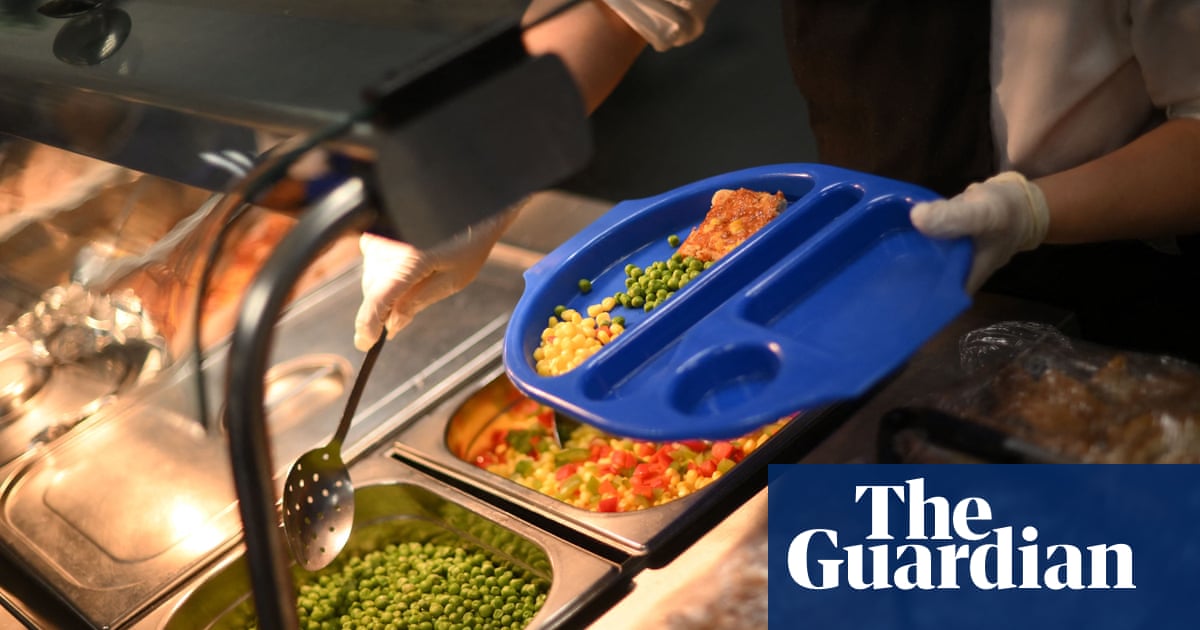
Parents and school leaders have criticised the government’s free school meals scheme for being hard to use, with many having difficulties buying food with the vouchers and others complaining about a helpline that costs £21 an hour.
While the government’s U-turn over extending free school meals in England over the summer holiday has been widely welcomed after the intervention of Manchester United footballer Marcus Rashford, many school leaders said their trust in the system has already collapsed.
A number of schools took over distribution to parents after initial technological problems since its launch in March meant many of the 1.3 million children entitled to £15 a week were unable to access the vouchers for weeks. At least one school is giving cash directly to parents as there is not a shop locally where the vouchers can be used.
The French-owned company Edenred which operates the scheme, worth up to £234m to the Department for Education and outsourced without a competitive tendering process, also faces criticism over its use of a helpline that costs at least £21 an hour, after a premium number costing up to £60 an hour was withdrawn in April.
Freddie Tandy, a teacher in West Sussex who has been helping to provide food to those in dire need throughout the lockdown, said “it should never have got to a point where a footballer was calling for children to be fed” and there continued to be issues with the scheme.
“Parents regularly report issues accessing the Edenred website,” he claimed. “At the worst point, parents were reporting getting up in the early hours of the morning because that was the only time they could guarantee it worked because of the sheer scale of traffic.”
There is also confusion over how to redeem the vouchers despite DfE and Edenred efforts to brief parents. “In some instances, parents have been told at the checkout that they are not valid,” Tandy added. Others may not have internet access.
“Getting them has been more stressful than lockdown itself for people. One of the support staff at school logged on to the Edenred site in April and was 143,000th in the queue. It was one of the moments where you thought this cannot be right.”
An Edenred spokesperson said there was never a queue of more than 100,000 people and that the system randomly gave people misleading queue numbers. It was later updated. It said that vouchers do not work at the till if they are damaged or not printed fully with the barcode, with only isolated incidents of them not working.
They added that parents and schools no longer face waiting times on the FSM site – though it accepted there were serious challenges until the end of April – and that the DfE always said schools should make their own arrangements if the voucher scheme is unviable locally.
In Lincolnshire, a secondary academy headteacher who did not wish to be named said her school has spent tens of thousands providing a third of its parents with £15 a week because the scheme does not cover its local shops.
“The supermarkets that have been included are not accessible for our families in our rural setting so we decided to pay our parents directly,” she said.
On the extension of the scheme over the summer, she added: “It’s leaving us in further financial limbo. The school’s bank balance is disappearing.”
Sarah Cook, the deputy headteacher of a school in Kent, said the system had been a disaster and that parents have spent hours at her school calling the company to access the vouchers, though the situation had now improved.
“We have just got the bill through and it is astronomical,” she said. “One call alone for an hour when a parent was kept on hold cost £56. I am disgusted as this money should be going to pay for school meals. It’s no good if Marcus Rashford is helping at one end while profiteers are at the other.”
Edenred said the premium rate number was taken out of service in April as soon as the company realised it was circulating. The maximum charge is now £21 for an hour-long call and is billed by the caller’s own provider if they have exceeded their talk plan.
The company accepted there were difficulties after the March launch but stressed they were not representative of the “unprecedented scale” of the scheme that the company was delivering: almost 11 million individual weekly £15 meal allowances worth over £164m.
“As the widespread support for the scheme and the figures show, this is a scheme which is working well for the families and 17,500 schools who use it,” a spokesperson said, rejecting any suggestion of the FSM scheme having any ongoing performance issues.
“Voucher and eCode fulfilment is running smoothly and we are receiving a minimal number of queries or complaints, with schools and parents supportive of the work we are doing.”
The spokesperson added that the scheme had been running smoothly since May, and that the issues had been resolved.












